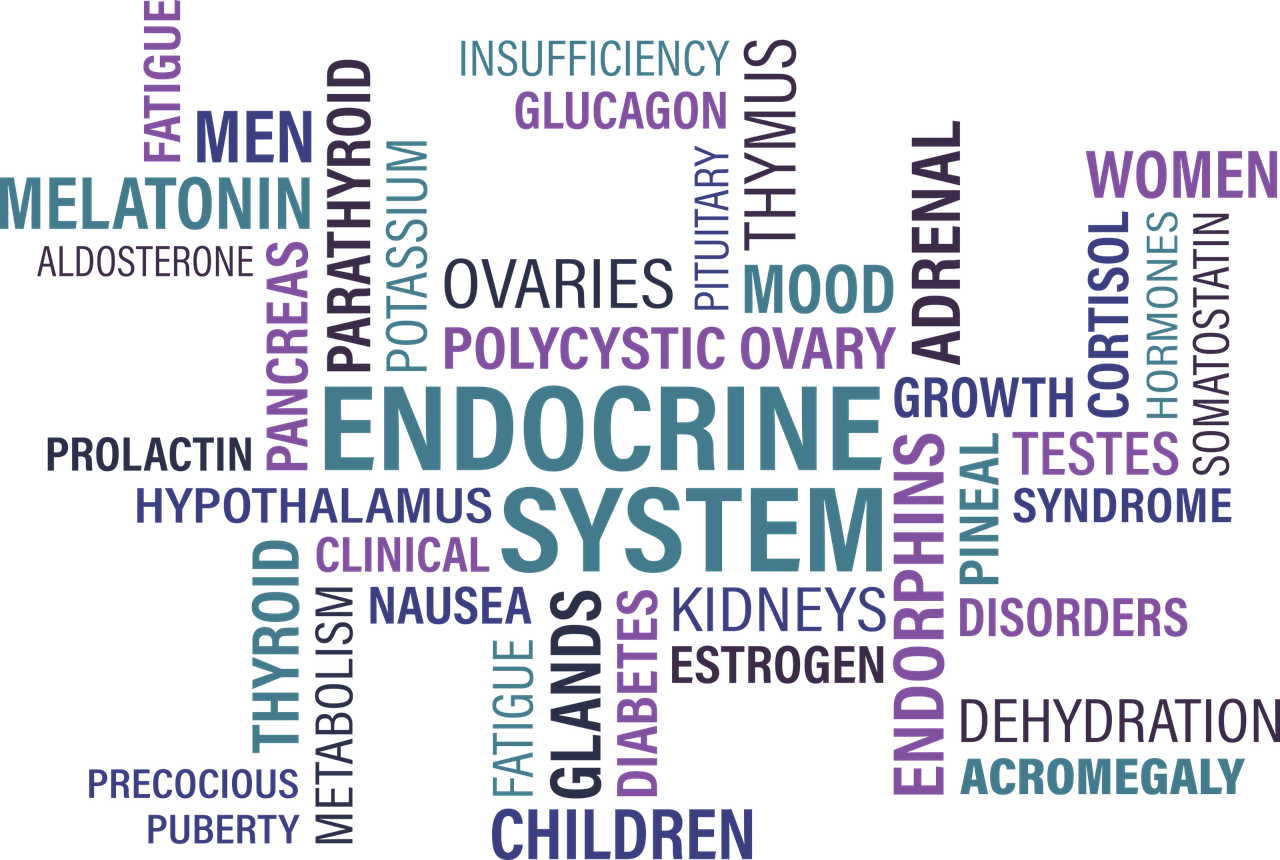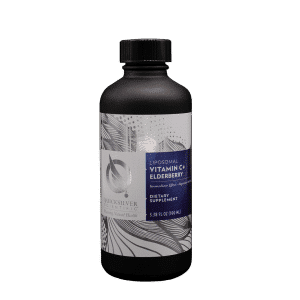What You Need To Know About The Health Benefits of Gratitude: A Research-Based Overview of 3 Incredible Benefits
The Health Benefits of Gratitude: A Research-Based Overview
Overview

Long ago, the scriptures of the bible admonished believer and follower of Jesus Christ to practice thankfulness as a manifestation of practicing righteousness and love. This teaching is now being confirmed through scientific research in our modern day. My view of gratitude is from a biblical worldview, and I often practice thankfulness through prayer and acts of kindness. However, the purpose of this article is to explore the health benefits of gratitude, drawing from various studies and expert insights.
What is Gratitude?
Gratitude is a complex and multifaceted emotion that encompasses feelings of thankfulness and appreciation. It can be directed towards people, nature, or life circumstances, and it involves recognizing and appreciating the positive aspects of life. Gratitude has been studied extensively in the fields of psychology, philosophy, and even neuroscience, and it is considered a vital component of positive psychology.
Definitions and Perspectives
- Psychological Definition: Psychologists define gratitude as a positive emotional response to the receipt of a benefit that is perceived to come from an external source. Robert Emmons, a leading researcher in the field, describes gratitude as “a felt sense of wonder, thankfulness, and appreciation for life.”
- Philosophical Perspective: Philosophically, gratitude is considered a moral virtue that promotes social harmony and interpersonal bonds. It is seen as a fundamental aspect of human relationships and ethical behavior.
- Neuroscientific View: From a neuroscientific perspective, gratitude is linked to brain regions associated with social cognition and emotional regulation, such as the prefrontal cortex and the anterior cingulate cortex. These areas are activated when individuals experience or express gratitude.
Key Components of Gratitude
- Recognition: The first component of gratitude involves recognizing that one has received a benefit. This recognition is crucial as it shifts the focus from what one lacks to what one has, fostering a positive mindset.
- Acknowledgment: Acknowledging the source of the benefit, whether it is another person, a higher power, or a fortuitous circumstance, is the second component. This acknowledgment fosters a sense of interconnectedness and humility.
- Appreciation: The final component is appreciating the benefit and the effort or kindness behind it. Appreciation deepens the emotional experience of thankfulness and enhances its positive effects on well-being.
Expressions of Gratitude
Gratitude can be expressed in various ways, including:
- Verbal Expressions: Saying “thank you” is the most direct and common way to express gratitude.
- Written Expressions: Writing thank-you notes or keeping a gratitude journal can help individuals articulate and reflect on their feelings of thankfulness.
- Acts of Kindness: Performing acts of kindness as a way to give back or pay it forward is another powerful expression of thankfulness.
Benefits of Gratitude
Research has shown that practicing gratitude can have numerous benefits for mental and physical health, including improved mood, better sleep, reduced symptoms of illness, and stronger social relationships. These benefits are well-documented in the scientific literature. More on this below.
The Health Benefits of Gratitude
Psychological Benefits
- Improved Mental Health: Gratitude has been shown to reduce a multitude of toxic emotions, from envy and resentment to frustration and regret. Robert Emmons, a leading gratitude researcher, has conducted multiple studies on the link between gratitude and well-being. His research confirms that thankfulness effectively increases happiness and reduces depression.
- Enhanced Mood and Emotional Regulation: A study published in the Journal of Positive Psychology found that practicing thankfulness can increase positive affect and decrease negative affect, contributing to an overall improved mood and emotional balance. This is particularly beneficial in managing stress and anxiety.
- Increased Resilience: Grateful individuals tend to recover more quickly from traumatic events. Research indicates that thankfulness can foster resilience by promoting a positive reinterpretation of stressful events, enhancing coping strategies, and reducing the impact of negative emotions.
Physical Health Benefits
- Better Sleep: Writing in a gratitude journal before bed has been shown to result in longer and better sleep. A study in the journal Applied Psychology: Health and Well-Being reported that participants who wrote about things they were grateful for had better sleep quality, fell asleep faster, and slept longer.
- Reduced Symptoms of Physical Illness: Grateful individuals report fewer aches and pains and generally feel healthier than other people. This is likely due to the combined effect of better mental health and lower stress levels.
- Lower Blood Pressure and Improved Heart Health: Thankfulness has been linked to better heart health. A study published in the American Journal of Cardiology found that grateful individuals have lower blood pressure and healthier heart rate variability, indicating better cardiovascular health.
Social Benefits
- Enhanced Relationships: Expressing gratitude can strengthen relationships. A study from the Journal of Personal and Social Relationships found that thankfulness can make people feel more connected and satisfied in their relationships. Partners who expressed gratitude towards each other experienced increased relationship satisfaction and stability.
- Increased Prosocial Behavior: Grateful people are more likely to exhibit prosocial behaviors, such as helping others and showing empathy. This fosters a positive social environment and builds a supportive community around the individual.
Practical Applications
To harness the health benefits of gratitude, individuals can adopt several practices:
- Gratitude Journaling: Writing down things one is thankful for can enhance mental well-being and reduce stress.
- Gratitude Letters: Writing letters of thanks to people who have made a difference in one’s life can improve mood and strengthen relationships.
- Mindfulness and Meditation: Integrating gratitude into mindfulness practices can enhance overall emotional regulation and resilience.
How to Develop Gratitude in Everyday Life
Gratitude is not only a spontaneous feeling but also a practice that can be cultivated and strengthened over time. Developing gratitude can significantly
- Gratitude Journaling
One of the most effective ways to develop thankfulness is through gratitude journaling. This involves regularly writing down things you are grateful for.
- Practice: Spend a few minutes each day or week writing down three to five things you are thankful for. These can be small things, such as enjoying a cup of coffee, or larger events, like receiving help from a friend.
- Benefits: Studies have shown that thankfulness journaling can increase overall well-being, improve sleep, and reduce symptoms of depression and anxiety.
- Expressing Gratitude to Others
Expressing gratitude directly to others can enhance your relationships and increase your own feelings of gratitude.
- Practice: Make a habit of expressing thanks to people in your life. This can be done through verbal expressions, thank-you notes, or even small acts of kindness.
- Benefits: Research indicates that expressing thankfulness to others can strengthen social bonds and increase feelings of connectedness and happiness.
- Mindfulness and Meditation
Mindfulness practices can help you focus on the present moment and appreciate what you have.
- Practice: Incorporate gratitude into your mindfulness or meditation routine. Spend a few moments each day focusing on the things you are grateful for.
- Benefits: Mindfulness and gratitude practices have been shown to reduce stress and enhance emotional well-being.
- Gratitude Visualization
Visualization can help deepen the emotional experience of gratitude.
- Practice: Take a few minutes each day to visualize people, moments, or things you are grateful for. Picture them in your mind and feel the gratitude in your heart.
- Benefits: Visualization can enhance the positive effects of gratitude by making the experience more vivid and emotionally resonant.
- Acts of Kindness
Engaging in acts of kindness can help foster a sense of gratitude.
- Practice: Perform random acts of kindness, such as helping a neighbor, volunteering, or simply offering a kind word to someone in need.
- Benefits: Acts of kindness not only benefit others but also increase your own feelings of gratitude and happiness.
- Gratitude Reflection
Reflecting on past experiences can help you appreciate the positive aspects of your life.
- Practice: Set aside time to reflect on positive past experiences and what you have learned from them. Consider how these experiences have shaped you and contributed to your current well-being.
- Benefits: Reflection can deepen your sense of gratitude and help you recognize the positive impact of past events on your life.
Developing gratitude is a powerful way to enhance your well-being and improve your quality of life. By incorporating practices such as journaling, expressing gratitude, mindfulness, visualization, acts of kindness, and reflection into your daily routine, you can cultivate a more grateful mindset and experience the numerous benefits that come with it.
How Contentment Helps Develop Gratitude
Contentment and thankfulness are closely related positive emotions that can significantly enhance one’s well-being. Contentment is a state of satisfaction
Understanding Contentment and Gratitude
- Contentment: Contentment is a sense of satisfaction with what one has and where one is in life. It involves accepting and finding peace in the present moment without constantly yearning for more.
- Gratitude: Gratitude is the recognition and appreciation of the positive aspects of life and the benefits received from others or circumstances. It is often described as a felt sense of wonder, thankfulness, and appreciation.
How Contentment Fosters Gratitude
- Shift in Focus from Lack to Abundance
- Mechanism: Contentment encourages individuals to focus on what they have rather than what they lack. This shift in perspective is crucial for developing gratitude.
- Evidence: Research shows that individuals who practice contentment are more likely to recognize and appreciate the positive aspects of their lives, leading to increased feelings of thankfulness.
- Reduced Comparison with Others
- Mechanism: Contentment reduces the tendency to compare oneself with others, which is often a source of dissatisfaction and envy.
- Evidence: A study published in the Journal of Positive Psychology found that contentment is associated with lower levels of social comparison and higher levels of thankfulness.
- Increased Mindfulness and Presence
- Mechanism: Contentment fosters mindfulness and presence, helping individuals to fully experience and appreciate the current moment.
- Evidence: Mindfulness practices, which promote contentment, have been shown to enhance thankfulness by helping individuals to notice and appreciate the present moment.
- Enhanced Emotional Regulation
- Mechanism: Contentment improves emotional regulation, making it easier to maintain a positive outlook and recognize the good in one’s life.
- Evidence: Research indicates that individuals who experience higher levels of contentment are better able to regulate their emotions, leading to increased gratitude.
- Positive Reinterpretation of Experiences
- Mechanism: Contentment helps individuals to reinterpret negative experiences in a positive light, recognizing the growth and benefits that can come from challenges.
- Evidence: Studies have shown that content individuals are more likely to find positive meaning in difficult situations, which fosters a sense of gratitude for the lessons learned and strengths gained.
Practical Ways to Cultivate Contentment and Gratitude
- Practice Mindfulness Meditation
- Activity: Engage in mindfulness meditation to develop present-moment awareness and acceptance.
- Benefit: This practice can enhance contentment and, consequently, gratitude by helping individuals to appreciate the here and now.
- Adopt a “Less is More” Attitude
- Activity: Simplify your life by focusing on what truly matters and letting go of unnecessary desires and possessions.
- Benefit: Embracing simplicity can lead to greater contentment and a deeper appreciation for what you already have, fostering thankfulness.
- Reflect on Positive Experiences
- Activity: Regularly reflect on positive experiences and the good things in your life.
- Benefit: Reflection helps to reinforce feelings of contentment and gratitude by keeping positive memories and benefits at the forefront of your mind.
- Express Gratitude Regularly
- Activity: Make it a habit to express gratitude, whether through journaling, thank-you notes, or verbal acknowledgments.
- Benefit: Regularly expressing thankfulness reinforces contentment by highlighting the positive aspects of life and the contributions of others.
Contentment plays a crucial role in developing gratitude by shifting focus from what is lacking to what is present, reducing social comparisons, enhancing mindfulness, improving emotional regulation, and enabling positive reinterpretation of experiences. By cultivating contentment through mindfulness, simplicity, reflection, and regular expressions of thankfulness, individuals can enhance their overall well-being and foster a more grateful outlook on life.
Are There Any Negative Effects of Practicing Gratitude?
While gratitude is widely recognized for its positive effects on well-being, it is important to acknowledge that there can be potential downsides or challenges associated with practicing gratitude. These negative effects are often context-dependent and can vary based on individual differences and circumstances. Here are some potential negative effects of practicing gratitude, along with relevant research and expert insights.
- Feelings of Obligation or Indebtedness
- Issue: For some individuals, expressing gratitude can lead to feelings of obligation or indebtedness, particularly if the thankfulness is directed towards someone who has provided significant help or support.
A study published in the Journal of Social and Clinical Psychology found that feelings of indebtedness can arise when individuals perceive the benefits they received as costly to the giver, potentially leading to discomfort or stress.
- Suppressing Negative Emotions
- Issue: An overemphasis on gratitude can sometimes lead individuals to suppress or overlook their negative emotions. This suppression can be detrimental to mental health, as it prevents individuals from addressing and processing these emotions.
Research indicates that while positive psychology practices, including gratitude, can enhance well-being, they should not be used to avoid or invalidate negative emotions. It’s important to maintain a balanced emotional approach.
- Comparison with Others
- Issue: Gratitude practices can sometimes lead individuals to compare their situations with others, potentially resulting in feelings of inadequacy or envy if they perceive others as having more to be grateful for.
Studies have shown that social comparisons can negatively impact self-esteem and well-being, particularly when individuals feel they fall short in comparison to others.
- Cultural and Social Factors
- Issue: The practice and expression of gratitude can be influenced by cultural and social factors. In some cultures, expressing thankfulness may be seen as unnecessary or even inappropriate, potentially leading to misunderstandings or social discomfort.
Research on cross-cultural differences in thankfulness expression highlights that what is considered appropriate or meaningful thankfulness can vary widely across cultures, affecting how gratitude practices are received and interpreted.
- Issue: Practicing gratitude superficially, without genuine emotion or reflection, can render the practice ineffective or even counterproductive. It may lead to feelings of inauthenticity or frustration.
Authenticity in gratitude practices is crucial for reaping the benefits. Superficial thankfulness practices can undermine the potential positive effects on well-being.
Mitigating the Negative Effects
To ensure that gratitude practices are beneficial, it is important to approach them mindfully and with a balanced perspective:
- Acknowledge All Emotions: Recognize and validate a range of emotions, both positive and negative. Gratitude should complement, not replace, the processing of negative emotions.
- Practice Authentic Gratitude: Engage in gratitude practices that feel genuine and meaningful. Avoid superficial or forced expressions of thankfulness.
- Understand Cultural Contexts: Be mindful of cultural differences in expressing gratitude and tailor practices accordingly to ensure they are appropriate and respectful.
- Balance with Other Practices: Integrate gratitude practices with other well-being strategies, such as mindfulness, self-compassion, and emotional regulation.
While gratitude practices have many well-documented benefits, it is important to be aware of potential negative effects. By approaching gratitude with authenticity, balance, and cultural sensitivity, individuals can maximize its positive impact on their well-being.
Gratitude and Its Impact on Health and Disease
Gratitude, the practice of recognizing and appreciating the positive aspects of life, has been increasingly studied for its effects on health and disease. Research suggests that thankfulness can have a profound impact on both mental and physical health, influencing a wide range of conditions and improving overall well-being. This article explores the relationship between gratitude and health, highlighting how gratitude practices can contribute to disease prevention and management.
- Gratitude and Mental Health
- Depression and Anxiety: Gratitude practices have been shown to reduce symptoms of depression and anxiety. Regularly practicing gratitude can shift focus from negative thoughts and feelings to positive ones, enhancing overall mood. A study published in Journal of Research in Personality found that participants who wrote gratitude letters reported significantly better mental health outcomes compared to those who did not.
- Stress Reduction: Gratitude can help mitigate the effects of stress by promoting a positive outlook and increasing resilience. Researchers, Emmons and McCullough (2003) demonstrated that gratitude journaling led to reduced stress and greater emotional well-being in participants.
- Gratitude and Cardiovascular Health
- Blood Pressure: Gratitude has been associated with lower blood pressure, which is a significant factor in preventing cardiovascular diseases. A study by Mills and his associates in 2015 show that patients with hypertension who practiced gratitude showed a reduction in systolic blood pressure.
- Heart Health: Expressing thankfulness can improve heart rate variability, which is a marker of heart health and resilience to stress. A study in Psychosomatic Medicine found that gratitude was associated with better heart rate variability in patients with heart failure, indicating better autonomic regulation and cardiovascular health.
- Gratitude and Immune Function
- Immune Response: Positive emotions like gratitude can enhance immune function, making the body more resilient to infections and diseases. A study published in Psychological Science showed that individuals who practiced gratitude had higher levels of immunoglobulin A, an antibody that plays a critical role in mucosal immunity.
- Gratitude and Sleep Quality
-
- Improved Sleep: Gratitude practices can improve sleep quality by reducing negative thoughts and promoting a sense of calm before bedtime. A study in Applied Psychology: Health and Well-Being found that individuals who wrote in a gratitude journal before bed reported better sleep quality and longer sleep duration.
- Gratitude and Chronic Pain Management
-
- Pain Perception: Gratitude can alter the perception of pain, making it more manageable and less distressing. In a study published in Personality and Individual Differences, chronic pain patients who engaged in gratitude practices reported lower levels of perceived pain and greater overall well-being.
Mechanisms Linking Gratitude to Health
-
- Neurobiological Pathways: Gratitude activates brain regions associated with dopamine and serotonin, neurotransmitters that regulate mood and behavior. This activation can enhance emotional well-being and reduce stress. Studies using functional MRI (fMRI) have shown that gratitude activates the prefrontal cortex, a brain region involved in emotional regulation and decision-making.
- Behavioral Pathways: Practicing gratitude can lead to healthier behaviors, such as increased physical activity, better diet, and adherence to medical recommendations. Gratitude interventions have been linked to improved health behaviors, contributing to better physical health outcomes.
Gratitude has a significant impact on both mental and physical health, influencing a wide range of conditions from depression and anxiety to cardiovascular health and immune function. By promoting positive emotions, reducing stress, and encouraging healthy behaviors, gratitude can play a crucial role in disease prevention and management. Incorporating gratitude practices into daily life can lead to substantial improvements in overall well-being and quality of life.
After Thoughts
The health benefits of gratitude are extensive and well-supported by scientific research. By fostering a mindset of thankfulness, individuals can improve their mental, physical, and social well-being. As the body of research continues to grow, the implementation of gratitude practices in daily life and therapeutic settings is likely to become increasingly prevalent.
Start incorporating GRATITUDE into your everyday life today to help you start enjoying its health benefits and experience a revitalized optimal health.
For natural and healing remedies, products, and supplements to help you live your most optimal healthy life, visit our store here!
Remember: Own Your Health!
If you enjoyed the information presented in this article, Please Share It. Help us reach more people and keep this website going! Thank you!
Note: The information provided in this article is for educational purposes only and should not be considered medical advice. Please consult with a healthcare professional or registered dietitian before making any significant changes to your diet or lifestyle.
References
- Emmons, R. A., & McCullough, M. E. (2003). Counting blessings versus burdens: An experimental investigation of gratitude and subjective well-being in daily life. Journal of Personality and Social Psychology, 84(2), 377-389.
- Emmons, R. A. (2007). Thanks!: How Practicing Gratitude Can Make You Happier. Houghton Mifflin Harcourt.
- Wood, A. M., Froh, J. J., & Geraghty, A. W. (2010). Gratitude and well-being: A review and theoretical integration. Clinical Psychology Review, 30(7), 890-905.
- Fredrickson, B. L., Tugade, M. M., Waugh, C. E., & Larkin, G. R. (2003). What good are positive emotions in crises? A prospective study of resilience and emotions following the terrorist attacks on the United States on September 11th, 2001. Journal of Personality and Social Psychology, 84(2), 365-376.
- Wood, A. M., Joseph, S., Lloyd, J., & Atkins, S. (2009). Gratitude influences sleep through the mechanism of pre-sleep cognitions. Journal of Psychosomatic Research, 66(1), 43-48.
- Emmons, R. A., & Stern, R. (2013). Gratitude as a psychotherapeutic intervention. Journal of Clinical Psychology, 69(8), 846-855.
- Mills, P. J., Redwine, L., Wilson, K., Pung, M. A., Chinh, K., Greenberg, B. H., & Lunde, O. (2015). The role of gratitude in spiritual well-being in asymptomatic heart failure patients. Spirituality in Clinical Practice, 2(1), 5-17.
- Algoe, S. B., Gable, S. L., & Maisel, N. C. (2010). It’s the little things: Everyday gratitude as a booster shot for romantic relationships. Personal Relationships, 17(2), 217-233.
- Bartlett, M. Y., & DeSteno, D. (2006). Gratitude and prosocial behavior: Helping when it costs you. Psychological Science, 17(4), 319-325.
- Emmons, R. A. (2007). Thanks!: How Practicing Gratitude Can Make You Happier. Houghton Mifflin Harcourt.
- McCullough, M. E., Kilpatrick, S. D., Emmons, R. A., & Larson, D. B. (2001). Is gratitude a moral affect? Psychological Bulletin, 127(2), 249-266.
- Zahn, R., Garrido, G., Moll, J., & Grafman, J. (2014). Individual differences in posterior cortical volume and pride- and shame-proneness. Social Cognitive and Affective Neuroscience, 9(7), 993-1000.
- Watkins, P. C., Woodward, K., Stone, T., & Kolts, R. L. (2003). Gratitude and happiness: Development of a measure of gratitude and relationships with subjective well-being. Social Behavior and Personality: An International Journal, 31(5), 431-452.
- Garland, E. L., Fredrickson, B., Kring, A. M., Johnson, D. P., Meyer, P. S., & Penn, D. L. (2010). Upward spirals of positive emotions counter downward spirals of negativity: Insights from the broaden-and-build theory and affective neuroscience on the treatment of emotion dysfunctions and deficits in psychopathology. Clinical Psychology Review, 30(7), 849-864.
- Kiken, L. G., & Shook, N. J. (2011). Looking up: Mindfulness increases positive judgments and reduces negativity bias. Social Psychological and Personality Science, 2(4), 425-431.
- Layous, K., & Lyubomirsky, S. (2014). The how, why, what, when, and who of happiness: Mechanisms underlying the success of positive activity interventions. *Handbook of Positive Emotions, 473-494.
- Brown, K. W., & Ryan, R. M. (2003). The benefits of being present: Mindfulness and its role in psychological well-being. Journal of Personality and Social Psychology, 84(4), 822-848.
- Lyubomirsky, S., Sheldon, K. M., & Schkade, D. (2005). Pursuing happiness: The architecture of sustainable change. Review of General Psychology, 9(2), 111-131.
- Watkins, P. C., Scheer, J., Ovnicek, M., & Kolts, R. L. (2006). The debt of gratitude: Dissociating gratitude and indebtedness. Cognition and Emotion, 20(2), 217-241.
- Gruber, J., Mauss, I. B., & Tamir, M. (2011). A dark side of happiness? How, when, and why happiness is not always good. Perspectives on Psychological Science, 6(3), 222-233.
- Lyubomirsky, S., & Ross, L. (1997). Hedonic consequences of social comparison: A contrast of happy and unhappy people. Journal of Personality and Social Psychology, 73(6), 1141-1157.
- Morgan, B., Gulliford, L., & Kristjánsson, K. (2017). A new approach to measuring moral virtues: The Multi-Component Gratitude Measure. Personality and Individual Differences, 107, 179-189.
- Toepfer, S. M., Cichy, K., & Peters, P. (2012). Letters of gratitude: Further evidence for author benefits. Journal of Happiness Studies, 13(1), 187-201.
- Mills, P. J., Redwine, L., Wilson, K., Pung, M. A., Chinh, K., Greenberg, B. H., & Maisel, A. (2015). The role of gratitude in spiritual well-being in asymptomatic heart failure patients. Spirituality in Clinical Practice, 2(1), 5-17.
- Redwine, L., Henry, B. L., Pung, M. A., Wilson, K., Chinh, K., Knight, B., … & Mills, P. J. (2016). Pilot randomized study of a gratitude journaling intervention on heart rate variability and inflammatory biomarkers in patients with Stage B heart failure. Psychosomatic Medicine, 78(6), 667-676.
- Fredrickson, B. L., Mancuso, R. A., Branigan, C., & Tugade, M. M. (2003). The undoing effect of positive emotions. Motivation and Emotion, 27(4), 293-323.
- Nguyen, A. W., Gordon, M., & Langer, E. J. (2013). The role of gratitude in reducing perceived pain among older adults. Personality and Individual Differences, 54(2), 213-218.
- Zahn, R., Garrido, G., Moll, J., & Grafman, J. (2009). Individual differences in posterior cortical volume and pride- and shame-proneness: A voxel-based morphometry study. NeuroImage, 46(4), 250-257.




























0 Comment